Professional Courses
Industry-relevant training in Business, Technology, and Design
Categories
Interactive Games
Fun games to boost memory, math, typing, and English skills
Typing
Memory
Math
English Adventures
Knowledge
How to Crack JEE Main on Your First Attempt?
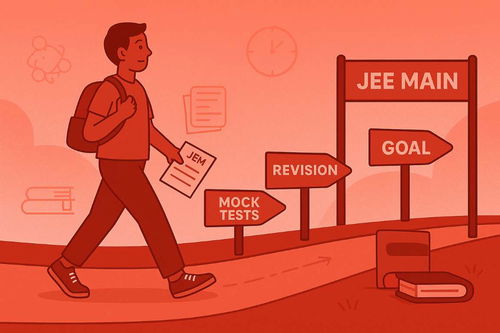
If you’re planning to appear for JEE Main, one question is likely on your mind: "Can I crack JEE Main on my first attempt?" And the answer is yes. Absolutely. Many students have done it before, and you can too!
All it takes is a smart approach, consistent effort, and using the right tools and techniques. This guide will walk you through everything you need to know to prepare effectively. Whether you’re just starting or already halfway in, these tips will help you build a solid JEE Main strategy for your first attempt.
First, Understand What JEE Main Is All About
Before diving into your books, take a moment to understand the exam itself. JEE Main is a national-level engineering entrance exam conducted by NTA. It covers three core subjects: Physics, Chemistry, and Mathematics.
Each subject has multiple-choice questions (MCQs) and numerical value-based questions. You get four marks for each correct answer, but one mark is deducted for every wrong MCQ. No marks are cut for unattempted questions or numerical answers.
It’s important to know the full syllabus. You can download the official JEE Main syllabus from the NTA website. Tick off each topic as you finish it. This will keep you motivated and help you stay organized.
Start Early and Make a Realistic Study Plan
The earlier you begin your JEE Main preparation, the better. If you’re in Class 11 or even Class 10, starting now will give you enough time to prepare calmly without rushing.
Start by identifying your strong and weak areas in Physics, Chemistry, and Maths. Is Physics fun for you? Does Organic Chemistry confuse you? Knowing this helps you plan better.
Create a daily and weekly study plan. Make sure it includes theory reading, problem-solving, mock tests, and revision. Don’t forget to include short breaks. Studying 6 to 8 hours a day is good, but quality matters more than quantity. Adjust your plan regularly based on how you are progressing.
Build Strong Basics with NCERT Books First
Your JEE preparation should begin with the NCERT textbooks. These books explain concepts clearly and cover most of the JEE Main syllabus. If you skip NCERT, you might miss out on many direct questions that come from these books.
For Chemistry, especially, NCERT is the bible. Read every line. Highlight important points. Make summary notes.
Once your basics are clear, move on to advanced books:
- For Physics: H.C. Verma, D.C. Pandey series
- For Chemistry: O.P. Tandon, Morrison & Boyd, N Awasthi
- For Maths: R.D. Sharma, Arihant, or Cengage series
But remember, stick to one book per subject at a time. Don’t get distracted by too many sources.
Focus on High-Weightage Chapters
Not all topics carry equal marks in JEE Main. Focus first on the chapters that are asked about frequently and carry more weight.
Important Topics in Physics:
- Mechanics
- Electrostatics
- Current Electricity
- Magnetism
- Optics
Important Topics in Chemistry:
- Atomic Structure
- Thermodynamics
- Organic Reaction Mechanisms
- Chemical Bonding
- Coordination Compounds
Important Topics in Maths:
- Calculus
- Algebra
- Coordinate Geometry
- Trigonometry
Mastering these topics early on gives you a head start. You’ll be able to score well even if you struggle with other areas.
Practice Every Day and Solve Questions Smartly
Solving questions daily is a must. Mix up different types of questions: easy, moderate, and hard. This trains your brain to handle everything during the actual exam.
Use topic-wise quizzes to test yourself after finishing each chapter. Focus on both speed and accuracy. Solving just 10–15 questions perfectly is better than rushing through 50 and getting many wrong.
As you practice, time yourself. Get used to solving questions under pressure.
Take Mock Tests and Solve Previous Year Papers
Mock tests are not just practice, rather they simulate the real exam. So, the more mocks you take, the more confident you become.
Start with one mock test every two weeks, then move to one every week. In the last three months, take two to three mocks every week. Solve at least 30 to 40 full-length mock tests before your actual exam.
Also, go through the last 10 years of JEE Main question papers. You’ll see repeated patterns and question types. Practice them well. Sometimes, the same question gets repeated with small changes.
Learn from Your Mistakes: Make a Review Log
Each mock test teaches you something. After every test, spend time reviewing what went wrong.
Create a simple notebook or spreadsheet. Note down:
- The question or topic
- What mistake you made
- Why you made it
- How to avoid it next time
This personal “error diary” becomes your best revision tool. Revise your mistakes often. That way, you won’t repeat them again in the actual exam.
Learn Time Management for Both Preparation and Exam Day
Time is your biggest asset. Make sure you use it wisely.
While studying, split your day into blocks. For example:
- Morning: Learn a new topic
- Afternoon: Practice questions
- Evening: Revise older topics
During exams, don’t waste time on hard questions in the beginning. Solve the easy ones first. Come back to the tough ones later. That way, you secure marks early and don’t panic.
Always keep track of how long you take for each subject in a mock test. Try to improve your speed gradually.
Revise Regularly with Smart Techniques
Revision is the key to retaining what you learn.
Use spaced repetition. This means revisiting topics after a few days or weeks. You could also make flashcards for formulas and reactions. Use sticky notes or apps like Anki.
The Feynman Technique is helpful too. Try explaining a topic in your own words to someone else (or to yourself). If you can teach it simply, you truly understand it.
Take Care of Your Health and Mind
JEE preparation can be stressful. That’s why you need to take care of your body and mind.
Sleep at least 7 to 8 hours daily. Eat fresh and nutritious food. Avoid junk, especially during study time.
Drink enough water and do light exercises or go for a short walk every day. You can also try meditation or breathing exercises to relax your mind.
Stay away from distractions like excessive phone use or social media. Give yourself short breaks between study sessions. That way, your brain gets time to recharge.
Use AllRounder.ai for Smarter JEE Preparation
You don’t have to do it all alone. Platforms like AllRounder.ai offer powerful JEE tools that make your journey easier.
Here’s how AllRounder.ai can help:
- Chapter-wise quizzes and topic tests
- Full-length timed mock tests
- Detailed performance analytics and insights
- Flashcards and spaced revision reminders
- Study planners and progress tracking
It’s like having a personal study coach 24/7. Use AllRounder.ai JEE Courses to boost your preparation.
Visit AllRounder.ai JEE Courses and explore more.
Subject-Wise Strategy for JEE Main
Physics Strategy:
Understand the concepts first. Don’t just memorize formulas, know where and how to use them. Practice solving numerical problems. Use videos and visual explanations if you get stuck.
Chemistry Strategy:
Stick to NCERT for Inorganic Chemistry. For Physical Chemistry, practice numericals daily. For Organic Chemistry, make short notes of reaction mechanisms and name reactions. Revise regularly.
Maths Strategy:
Practice is everything here. Learn formulas and apply them through lots of problems. Focus on speed and solving accuracy. Mock tests really help here.
Use AllRounder.ai’s quizzes and mock sets in each subject to stay sharp.
Daily Routine for JEE Preparation
A balanced routine can help you stay consistent. Here’s a sample schedule:
- 7:00 AM: Wake up, freshen up
- 7:30 AM – 9:30 AM: Study new topic (Physics/Chemistry/Maths)
- 9:30 AM – 10:00 AM: Break
- 10:00 AM – 1:00 PM: Solve questions from what you just learned
- 1:00 PM – 2:00 PM: Lunch and rest
- 2:00 PM – 4:00 PM: Revise old topics
- 4:00 PM – 4:30 PM: Tea or short walk
- 4:30 PM – 6:30 PM: Practice test or quiz
- 6:30 PM – 8:00 PM: Free time or hobby
- 8:00 PM – 9:30 PM: Quick review or flashcards
- 10:00 PM: Sleep
Change it based on your school timings or personal energy levels.
What to Do One Day Before the Exam
The night before JEE Main, don’t try to learn anything new.
Instead:
- Revise formulas and short notes
- Go over your error log
- Stay calm and rest well
- Keep your admit card and ID ready
- Sleep early
On the day of the exam, stay confident. Start with the questions you know. Use elimination for MCQs. Keep an eye on the clock and leave tricky questions for later.
Learn from Toppers Who Did It
Many students have cracked JEE Main on their first attempt. For example, Arenjay Das scored 99.9 percentile by focusing on NCERT, sticking to a regular routine, and playing football to relax.
Top scorers often say the same things:
- Be consistent
- Avoid distractions
- Focus on basics
- Take care of your health
- Analyse every mock test
Final Thoughts: You Can Crack JEE Main on Your First Attempt
JEE Main may be tough, but with the right mindset and preparation, you can crack it in your first attempt.
Here’s a quick summary:
- Start early and make a study plan
- Build strong basics with NCERT
- Focus on high-weightage topics
- Practice daily and solve mocks
- Revise regularly and track your mistakes
- Take care of your health and mental strength
- Use tools like AllRounder.ai to stay organized and motivated
Most importantly, believe in yourself. With smart effort and the right resources, you can achieve your goal and open the door to top engineering colleges in India.
Good luck!

Learn how negative marking works in JEE Main 2025 and how to avoid it with practical, proven strategies.

Learn how to prepare for JEE Main 2025 with a proven, winning strategy. Get a detailed plan, subject-wise tips, and...

Learn the chapter-wise weightage for JEE Main 2025 across Physics, Chemistry, and Maths. Prioritise smartly and...

Discover the most important chapters for JEE Main 2025 across Physics, Chemistry, and Maths. Focus your prep smartly...

Discover top JEE Main books for Physics, Chemistry & Maths. Learn how NCERT & reference books pair with AllRounder.
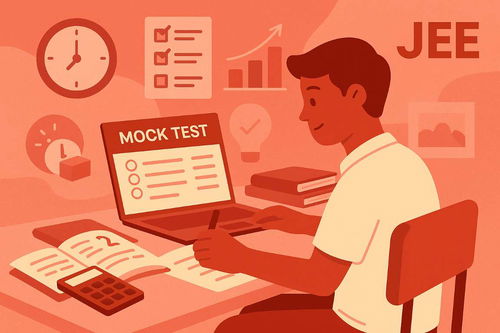
Looking for free JEE Main mock tests to boost your preparation? Discover the best platforms, tips, and strategies to...

Discover what scores and percentiles are needed to secure seats in top NITs, IIITs, and GFTIs. Learn how category...
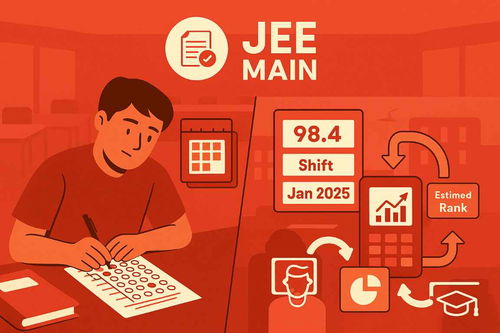
Understand the exact difference between JEE Main percentile and rank. Learn how scores are normalized across...

Understand the JEE Main scoring system to maximize your result. Learn the marking scheme, how to handle negative...

Confused about the JEE Main attempt limit? This guide clarifies how many times you can appear, the eligibility...

Wondering how many times you can appear for JEE Mains? This guide explains the total attempts allowed, session...

Discover the key differences between JEE Main and JEE Advanced in terms of syllabus, pattern, difficulty, and prep...

Confused about JEE Main qualification rules? This blog gives you a detailed checklist of eligibility criteria,...

Explore this simple, step‑by‑step guide to the JEE Main counselling process. Learn how to register, fill choices,...

Curious about how many times SC students can attempt JEE Main? This complete guide covers JEE Mains attempt rules,...

Want to score 200+ in JEE Main? This practical guide gives you proven tips, subject-wise strategies, mock test...

Wondering how the JEE Main exam is structured? This complete guide breaks down the official JEE Main exam pattern...

Learn how to crack JEE Main on your first attempt with proven strategies. This guide covers planning, conceptual...
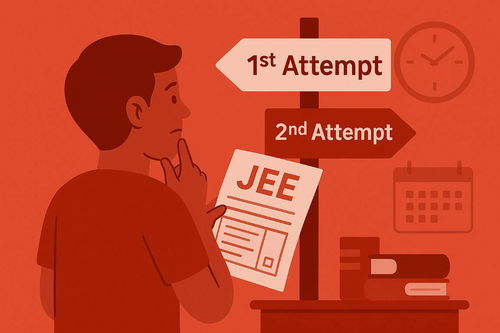
Learn how many JEE Main attempts you can take after Class 12. This guide covers eligibility, attempt limits, subject...

Learn about the JEE Main age limit requirement and key eligibility rules. Understand the attempt policy, Class 12...

Discover the most important topics for the JEE Main exam in Physics, Chemistry, and Mathematics. Learn subject-wise...

Get a subject-wise preparation strategy for JEE Main step-by-step using smart tips and trusted resources from AllRounder.ai.

Looking to score high in JEE Main 2026? Discover expert preparation tips on creating smart study plans, mastering...

Confused about JEE Mains eligibility? This detailed guide explains JEE Mains eligibility criteria including...
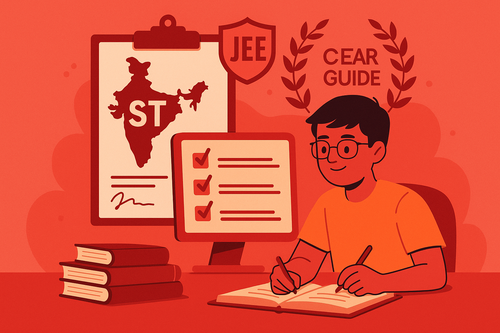
Confused about JEE Main Attempts for ST Category? This detailed guide covers attempt limits, age relaxations,...
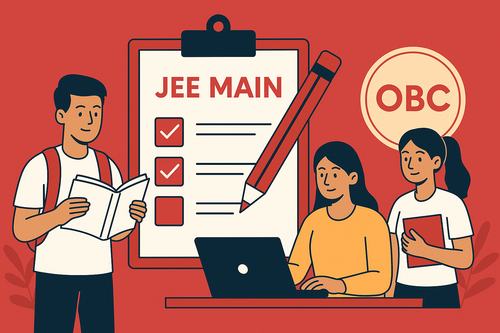
Wondering how many times OBC candidates can appear for JEE Mains? This detailed guide explains JEE Main Attempts for...

Dropping a year for JEE Mains? This in-depth strategy guide helps droppers optimise their JEE Main attempts with...

Confused about how many times you can appear for JEE Main? This guide explains the number of JEE attempts, session...
Resources
-
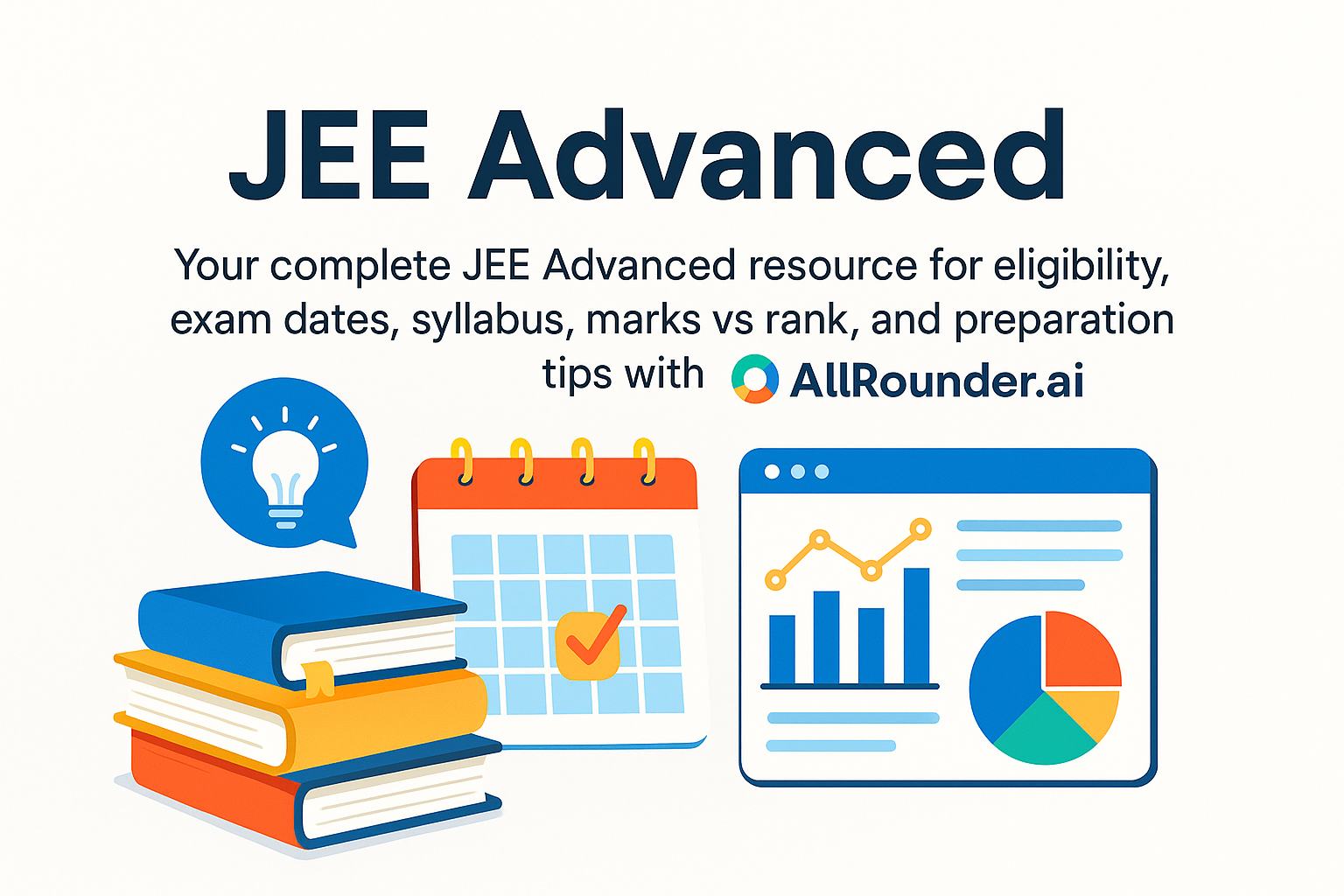
Your complete JEE Advanced resource for eligibility, exam dates, syllabus, marks vs rank, and...
-
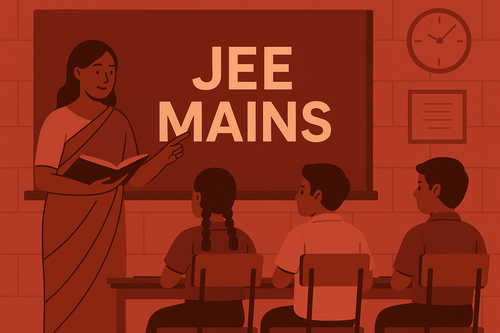
Understand the entire JEE Main process, from application and eligibility rules to the exam...
-

Explore the IB Board – a global curriculum emphasizing holistic, student-centered learning...
-

Learn about CBSE – India’s national school board offering a standardized curriculum, NCERT...
-

Explore everything about the ICSE board – its curriculum, subjects, exam format, and academic...
